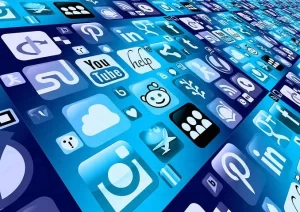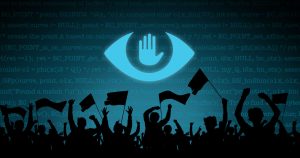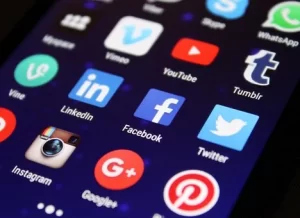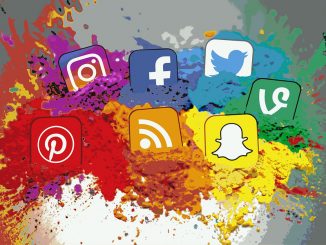Today’s Network is no longer the one built 30 years ago to only share academic knowledge. Since the word “techlash” was created in 2018, the public has realized that large technology companies’ growing influence and power have caused massive negative disruption to the public, the economy, and the government. Large technology companies’ use of algorithmic technology infringes on public privacy, affects the diversity of news, monopolizes the commercial market, and influences public political positions. Are governments, civil society organizations, and technology companies effective in regulating these negative behaviours?
What is Techlash?
Techlash is a term first coined by The Economist in 2018 to describe the widespread adverse reaction to modern big tech companies’ growing power and influence and their behaviour, such as Google, Facebook, Amazon, Apple, and Netflix (Flew et al., 2019).

The Negative Problems Caused by “Techlash”
1. Intrusion of User Privacy
According to the ACCC (2019), Google and Facebook collect users’ data and monetize it by offering services to consumers at zero-currency prices. Engage users by analysing their preferences to recommend relevant content (p. 59). The higher the number and number of visits, the higher the quality of the user’s data, enabling them to provide higher-quality ad targeting services. Accurate ad delivery reduces the average fixed cost of advertising and makes the platform more attractive to advertisers (p. 61). For example, when a user tries to play a game that runs on Instagram, Instagram will usually recommend that type of game to the user because the game is advertised on this platform. Users browse the clothing brand’s website on Instagram, which will often be recommended. In addition, both Facebook and Instagram automatically recommend users’ friends to new ones, leaving users feeling less private. The ability to view each other’s friends’ lists between Facebook and Instagram leaves users with little sense of privacy.

2. Destroy the Diversity of News
According to Elis on TED (2011), “a unique universe of information for each of us … which fundamentally alters the way we encounter ideas and information”. Internet companies filter information for users to allow users to stay on the platform longer, excluding content at odds with users to meet user preference, thus influencing users’ cognitive competence and the diversity of news (TED, 2011). For example, after a user views pet-related videos multiple times on the Instagram platform, the platform will regularly recommend pet-like videos to users. Users lost the chance to watch other diverse news. In addition, the algorithms of these platforms deliberately rely on anger and horror stories that trigger the user’s basic instincts to keep the user engaged. For example, the gunman who massacred Muslims in New Zealand broadcast his atrocity live on Facebook and then spread it on the Internet, possibly millions of times. These platforms use exposure to hot topic news to attract users to stay while also creating unfairly low exposure to other diverse news.

3. Monopolize the Commercial Market
Tech giants are so influential that they can control the rules of the game. They are both participants and owners of their platforms, tiling the competitive environment in their direction. Google is estimated to account for 93% of the global market share as of April 2019. Facebook had about 2.3 billion monthly active users in the first quarter of 2019, with 95 percent of users in Australia using the platform (ACCC, 2019, P. 62). For example, Apple’s tool, “Find My” has taken an enormous toll on Tile. Tile, a company that makes Bluetooth trackers, helps users find their phones, keys, wallets, and other belongings. On the one hand, Tile’s business has been badly damaged by Apple’s use of “Find My” on Apple’s gadgets and its inability to remove them and by requiring location tracking permission during the installation of the operating system. On the other hand, Tile customers using Apple’s latest iOS version must go to the settings on their phone to grant the app “always-on” location tracking rights (Reuters, 2020). Apple’s behaviour not only monopolizes the market but also stifles other small businesses.

4. Influences Public Political Positions
The political attitude of the giant social media platform largely influences user political positions. According to Sacha Baron Cohen (2019), “If you pay, Facebook will play whatever “political” ads you want, even lies.” Presidential candidates use social media platforms to frequently push their positive campaign news to help themselves get a higher level of campaigning. According to Halpern et al. (2017) stated that “After users browsed each candidate’s social media site, the candidate’s attractiveness ranking rose sharply.” The aim is to impress the public. For example, Obama’s 2008 presidential campaign used a series of Internet pushes, such as e-mail, social networks, Twitter. During the campaign, Obama received more than $55 million in donations through social media links (Hellweg, 2011, P. 2).

Regulations for “Techlash”
1. Self-regulation of Tech Giants
Self-regulation can be more effective for companies. Because platform companies are more knowledgeable about the technology and business of the industry, self-monitoring guides tend to be more practical and realistic, and the goals set are easier to achieve. These tech giants are the wealthiest companies globally, and they have the best engineers in the world. If they want to, they can solve these problems (Sacha Baron, 2019).
Twitter, for example, has set a good example, banning political advertising worldwide in 2019, claiming that the spread of such information “should be earned, not bought” (NEWS, 2019). Sacha Baron Cohen (2019) gives the platform a guideline that “Facebook, before you run political ads, start verifying the facts, stop lying about micro-targets immediately….”

2. The Government Supervises Tech Giants
World Wide Web Foundation launched “Contract for the Web” in November 2019 in response to online political manipulation, fake news, privacy violations, and other malicious forces (Berners-Lee, 2019). According to (Contract for the Web, 2019), governments need to ensure that everyone has access to the Internet, protecting citizens’ online privacy and data rights. The government’s supervision is adequate, and an excellent external supervision system can enforce specific industry rules by law and adequate supervision. Tech companies need to ensure that everyone can afford the Internet, respect and protect user privacy and data to build network trust and develop technologies humanely. For citizens, both creators and collaborators of the Internet, it is necessary to fight for the Network’s health and unite to build strong communities that respect the voice of citizens and human dignity.

3. Citizen Supervision Tech Giants
Citizen participation in the supervision of technology companies can improve citizens’ awareness of protecting rights and interests. The participation of civil society can promote public opinion’s support for regulation and make people aware of the necessity of regulation. Civil society also can assemble diverse forces to attract discussion from all walks of life. Citizens can refer to the White Paper for self-protection of online privacy and security. However, the oversight of civil society organizations is more of an advocacy initiative, the actual implementation of which requires cooperation with governments or technology companies and ultimately resorts to legal or industry organization rules (Berners-Lee, 2019).

Conclusion
The dominance of the Internet by these giant technology companies not only violates users’ privacy but also affects the diversity of news and interferes with fair competition in business and political campaigns. However, the problem of “techlash” cannot be solved by one party’s efforts, which requires adequate legal supervision by the government, the government’s self-supervision norms of enterprises, the improvement of citizens’ awareness of self-information protection.
ACCC. (2019). Digital platforms inquiry. pp. 58-62.
https://www.accc.gov.au/system/files/
Berners-Lee, T. (2020). 30 years on, what’s next #forthewe
https://webfoundation.org/2019/03/web-birthday-30/
Contract for the Web. (2019).
https://contractfortheweb.org/
Flew, T., Martin, F., & Suzor, N. (2019). Internet regulation as media policy: Rethinking the question of digital communication platform governance. Journal of Digital Media & Policy, 10(1), 33-50.
Hemphill, T. A. (2019). ‘Techlash’, responsible innovation, and the self-regulatory organization. Journal of Responsible Innovation, 6(2), 240-247.
Halpern, D., Valenzuela, S., & Katz, J E. (2017). We Face, I Tweet: How Different Social Media Influence Political Participation through Collective and Internal Efficacy.
https://academic.oup.com/jcmc/article/22/6/320/4675176
Reuters. (2020, April 2). Tile says Apple’s behavior is anticompetitive and has ‘gotten worse, not better’.
https://www.reuters.com/article/us-tech-antitrust-apple-tile-idUSKBN21J72V
News. (2019). Twitter to ban all political advertising.
https://www.bbc.com/news/world-us-canada-50243306
TED. (2011, March). Beware online “filter bubbles” [Video].
https://www.ted.com/talks/eli_pariser_beware_online_filter_bubbles/transcript

